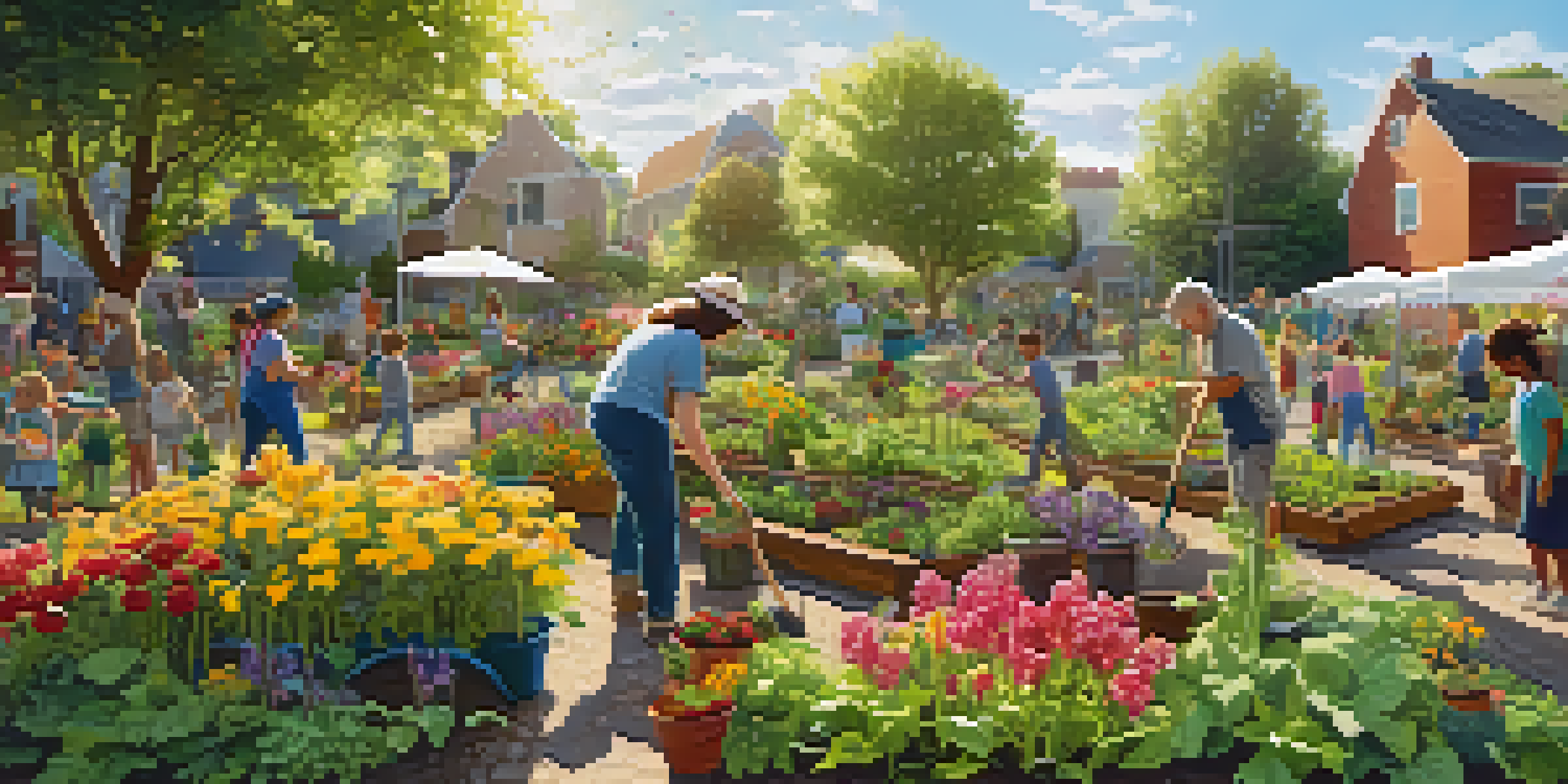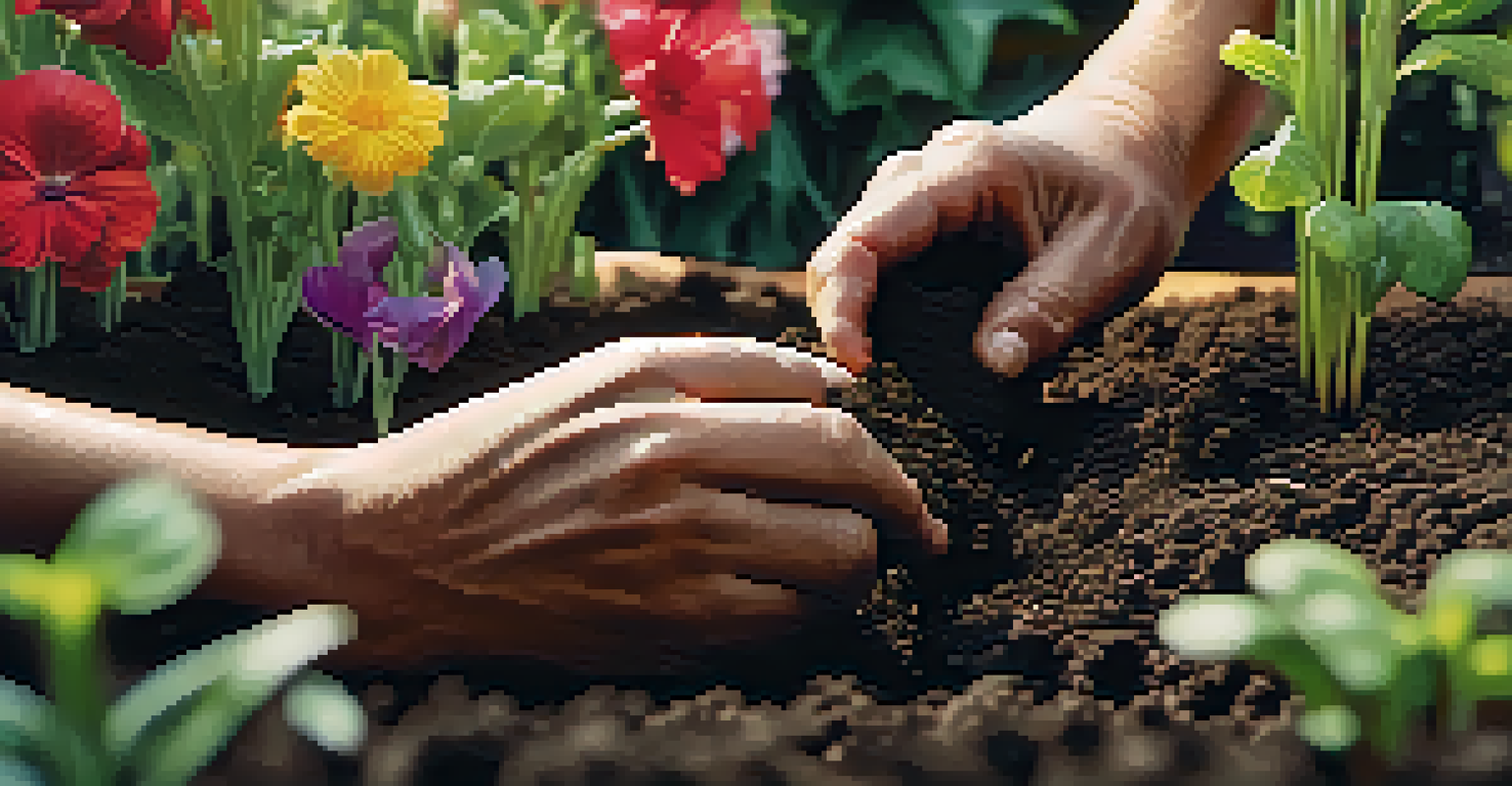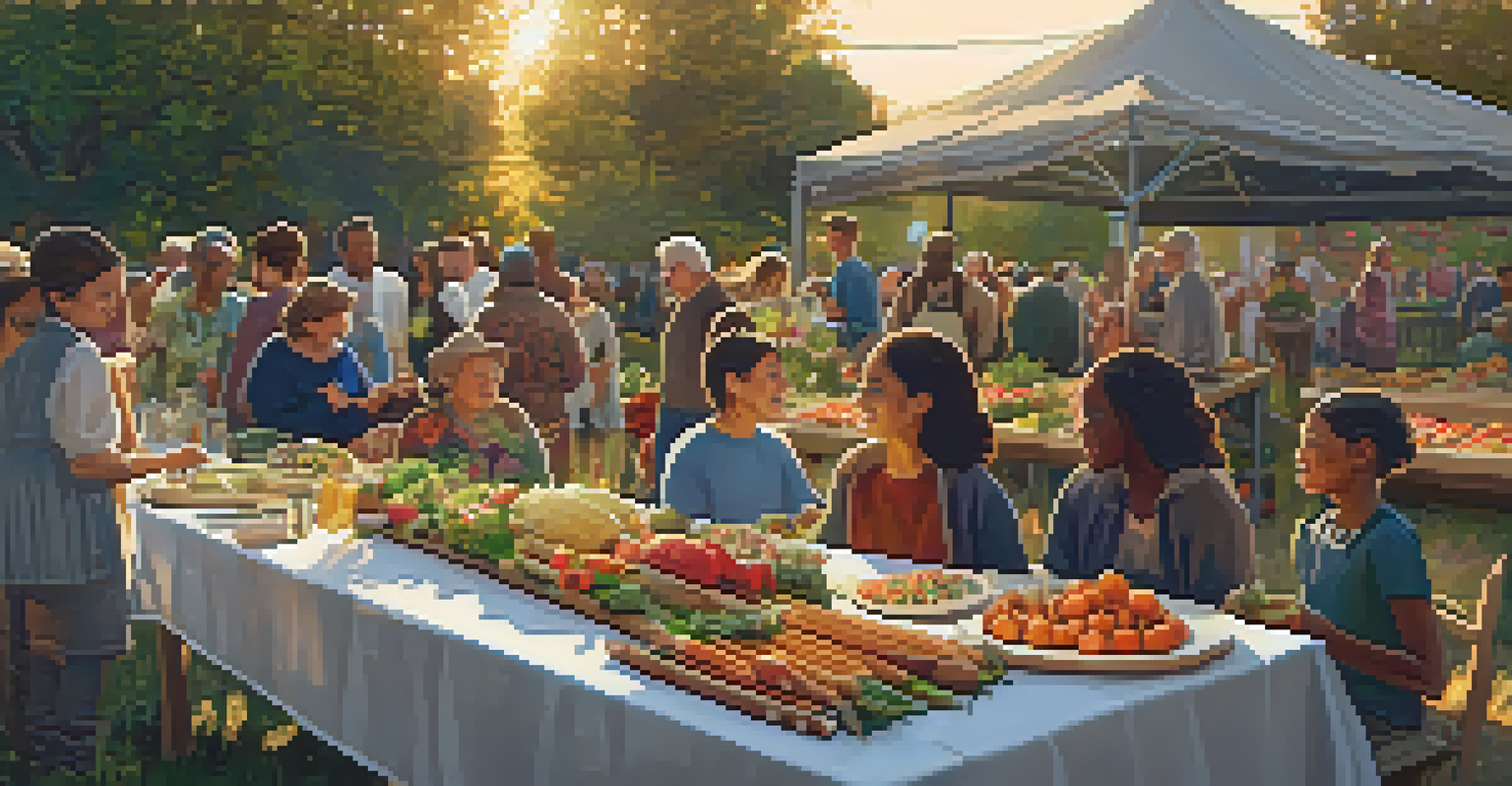Building Community Pride Through Collective Gardening Efforts

The Importance of Community Gardening Initiatives
Community gardening initiatives play a vital role in bringing people together. They create a shared space where individuals can collaborate, learn, and grow both plants and relationships. These gardens often become focal points in neighborhoods, sparking interest and participation from residents of all ages.
To plant a garden is to believe in tomorrow.
Moreover, gardening offers a unique opportunity for people to connect with nature, enhancing their well-being. As participants dig in the soil and nurture plants, they experience the therapeutic benefits of working outdoors. This connection to the earth fosters a sense of stewardship and responsibility towards the community.
Ultimately, a community garden is more than just a plot of land; it symbolizes unity. Through collective efforts, participants cultivate not only crops but also friendships, bridging gaps between diverse backgrounds and creating a welcoming environment for everyone.
Gathering Around Shared Goals and Visions
One of the most powerful aspects of community gardening is the ability to set shared goals. When neighbors come together to decide what to grow, they learn to listen and appreciate each other’s ideas and preferences. This collaboration nurtures a sense of ownership and pride in the garden’s success.

As gardeners work towards common objectives, they develop a shared vision for their space. Whether it’s growing vegetables for local families or creating a beautiful flower garden, working together fosters teamwork and strengthens relationships. These shared experiences create bonds that can last a lifetime.
Community Gardens Unite People
These initiatives foster collaboration, enhance relationships, and create a sense of belonging among diverse community members.
Furthermore, achieving these goals together instills a sense of accomplishment. Celebrating the milestones—like the first tomato harvest or a successful planting day—reinforces the community spirit and encourages ongoing participation, making the garden a vibrant hub of activity.
Fostering Environmental Awareness and Education
Community gardens are excellent platforms for environmental education. They provide hands-on learning experiences about sustainable practices, biodiversity, and the importance of pollinators. As participants engage with the garden, they gain valuable insights into how their actions impact the environment.
The greatness of a community is most accurately measured by the compassionate actions of its members.
Workshops and events held in gardens can further enhance this educational aspect. Topics may range from composting techniques to organic gardening methods, allowing participants to expand their knowledge and skills. This shared learning journey not only benefits the garden but also empowers individuals to make eco-friendly choices in their daily lives.
As community members become more aware of environmental issues, they often feel a greater sense of responsibility. This newfound consciousness can lead to broader community actions, such as advocating for sustainability initiatives or participating in local conservation efforts, thereby amplifying the garden’s positive impact.
Strengthening Local Food Systems and Security
Collective gardening efforts contribute significantly to local food systems. By growing fresh produce, communities can directly access healthy food, reducing reliance on grocery stores and minimizing food deserts. This shift not only supports local diets but also promotes food sovereignty.
Additionally, surplus produce from community gardens can be shared or donated to local food banks and shelters. This practice not only addresses food insecurity but also reinforces the idea of sharing and caring within the community. Knowing that their efforts directly benefit others can increase gardeners' sense of pride and purpose.
Gardening Boosts Environmental Awareness
Community gardens serve as platforms for education on sustainable practices, empowering individuals to make eco-friendly choices.
Moreover, as people learn to grow their own food, they develop important skills that can lead to greater self-sufficiency. This empowerment can inspire others to explore gardening, creating a ripple effect that strengthens the community's resilience and connection to food.
Creating Safe Spaces for All Community Members
Community gardens serve as safe havens where individuals can gather and express themselves freely. They provide an inclusive environment that welcomes people of all ages, backgrounds, and abilities. This openness fosters acceptance and encourages participation from everyone.
These gardens often become spaces for joy and creativity, where events like potlucks, art workshops, and music nights can take place. Such gatherings enhance social interactions and allow community members to celebrate their diverse cultures and traditions. The garden then transforms into a vibrant tapestry of shared experiences.
As safety and acceptance flourish, so does community pride. Residents feel more connected to their neighborhood and invested in its future, knowing they have a welcoming space to connect with others and contribute to the community’s well-being.
Building Leadership Skills Through Participation
Engaging in community gardening allows individuals to develop essential leadership skills. From organizing planting days to coordinating workshops, participants often take on roles that require planning, communication, and teamwork. These experiences are invaluable for personal growth and community involvement.
Those who step up to lead initiatives within the garden gain confidence and inspire others to get involved. As leadership roles are shared and rotated, everyone has the opportunity to learn and grow. This dynamic creates a supportive environment where skills are honed, and new leaders emerge.
Strengthening Local Food Security
By growing fresh produce, community gardens improve access to healthy food and promote self-sufficiency among residents.
Furthermore, these experiences can translate beyond the garden. Participants may find themselves more equipped to take on leadership positions in other community projects or organizations, fostering a culture of active engagement and empowerment throughout the neighborhood.
Celebrating Achievements and Progress Together
Celebrating achievements is a crucial aspect of community gardening. Regular events to showcase the garden's progress—like harvest festivals or garden tours—allow everyone to come together and appreciate their hard work. These celebrations reinforce the sense of community and shared success.
Such gatherings not only highlight the fruits of labor but also provide opportunities for storytelling. Participants can share personal experiences, lessons learned, and even recipes, deepening connections and creating lasting memories. This camaraderie is what makes community gardening truly special.

Moreover, celebrating achievements motivates continued participation. Knowing that their efforts will be recognized and appreciated encourages community members to stay involved and contribute to the garden’s growth for years to come.